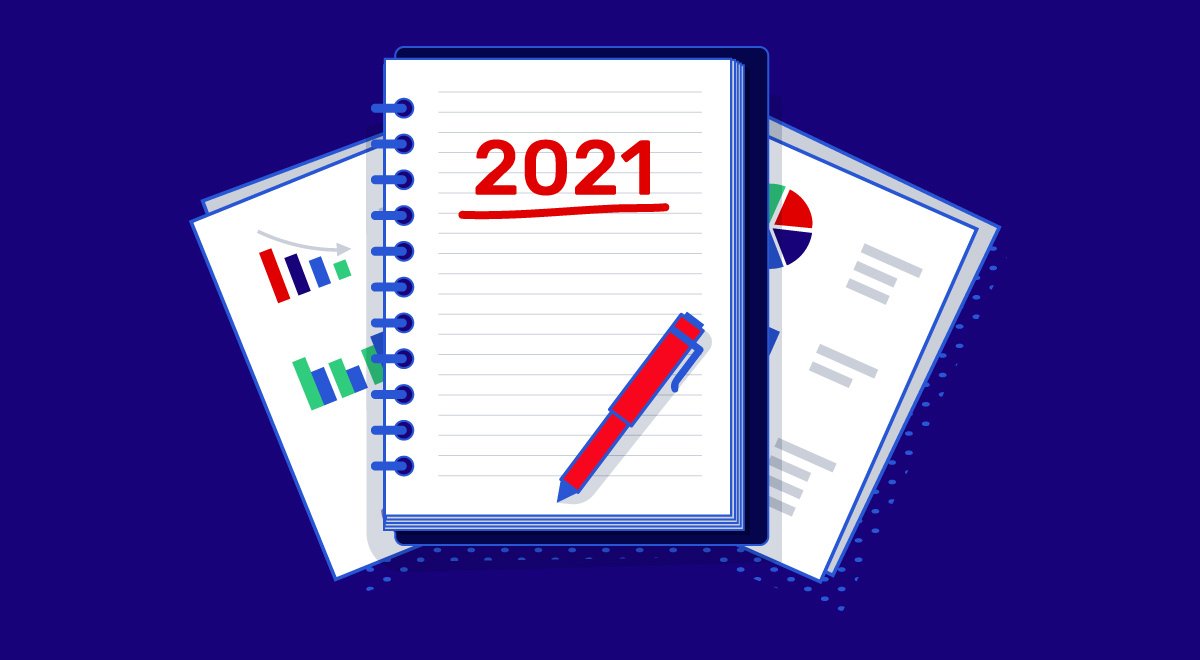Half of Americans planning their 2021 money resolutions claimed reducing debt or becoming debt-free is at the top of their list. Who wouldn’t want to improve their financial situation going into a new year?
If you’re focused on New Year’s debt resolutions and attacking your debt head-on, then congratulations are in order! Keeping your debt resolutions for 2021 will take hard work and dedication, but following these tips will help bring you closer to your financial goals.
SMART Goals
Your New Year’s debt resolutions should be SMART goals: specific, measurable, achievable, realistic, and timely.
Specific
What do you want to accomplish and why is this goal important? Make your goals specific. Don’t just say you want to be debt-free by the end of the year. Instead, say you want to save an extra $200 each month to put toward debt.
Measurable
Your debt resolutions need to be measurable. “I want to make smarter financial decisions” is excessively vague and impossible to accurately measure. You need to know exactly when you accomplish your goal.
Achievable
Your goals must also be achievable. Ask yourself how you can reach this goal. The possibility of failure is much higher if debt resolutions aren’t attainable.
Realistic
Are your debt resolutions realistic and reasonable? Can you reach your goals with the resources available?
Timely
When will you reach your goal? You need a target date in mind. Having a deadline makes it easier to focus and put in the extra effort.
Break Your Big Goals into Smaller Ones
Big debt resolutions can be intimidating and sometimes seem impossible. Breaking these big goals down into smaller steps can help you stay focused. Instead of saying you’ll pay down $2,000 in credit card debt in 6 months, make it a goal to set aside $100 from each paycheck. You can still have your big, long-term goals but smaller goals are the stepping-stones to success.
Attainable Debt Resolutions
If you’re deep in debt, it might take a while to dig yourself out, and the best way to start is to make attainable debt resolutions. Here are changes you can make and stick to as the year continues.
Monitor Your Spending
Start tracking your income and expenses to see exactly where your money is going. You can use old-fashioned pen and paper, spreadsheets, or a smartphone app that will track your spending for you. When you know where your money is being spent, it’s much easier to make adjustments and change bad habits.
Start Budgeting
Basic household budgeting is a necessity when it comes to achieving your debt resolutions. Now that you’ve determined your income and expenses, you can create a budget. Your budget should track spending on a day-to-day basis but also irregular expenses such as holidays, birthdays, or immediate needs such as a new car battery. Set your budget around achieving your debt resolutions.
Prioritize Saving
Getting out of debt means you need to start saving your cash. If you cut back on spending, place that extra money to the side to put toward your debt. Consider getting a side gig to bring in more money and pay down debt even faster.
Check Your Credit Report
Look at your credit report to see every account in your name, as well as what you owe on each. Who knows — you might even find a mistake. Finding an error on your credit report is common. According to the Federal Trade Commission, one in five Americans has at least one error on their credit report. You get a free annual credit report from each of the credit bureaus.
Create a Debt Management Plan
Whether you need a bit of professional help or you prefer a DIY approach, you need to put together a plan. Here’s how you can start working on your 2021 debt resolutions.
1. Make a list of all your debts. Put them in order of importance. Include the name of the lender, amount owed, the interest rate, and minimum monthly payments.
2. Consider one of these debt repayment methods: avalanche debt payoff method or the snowball method. With the avalanche method, you pay the debt with the highest interest rate first; with the snowball method, you pay the largest balance first.
3. Focus on one debt at a time and start chipping away.
Track Your Progress
Start tracking your progress and be proud of your accomplishments. Seeing growth and improvement is the biggest motivation that you need to take advantage of. Now that 2021 is here, it’s time to leave bad financial habits behind and start working on your debt resolutions.





